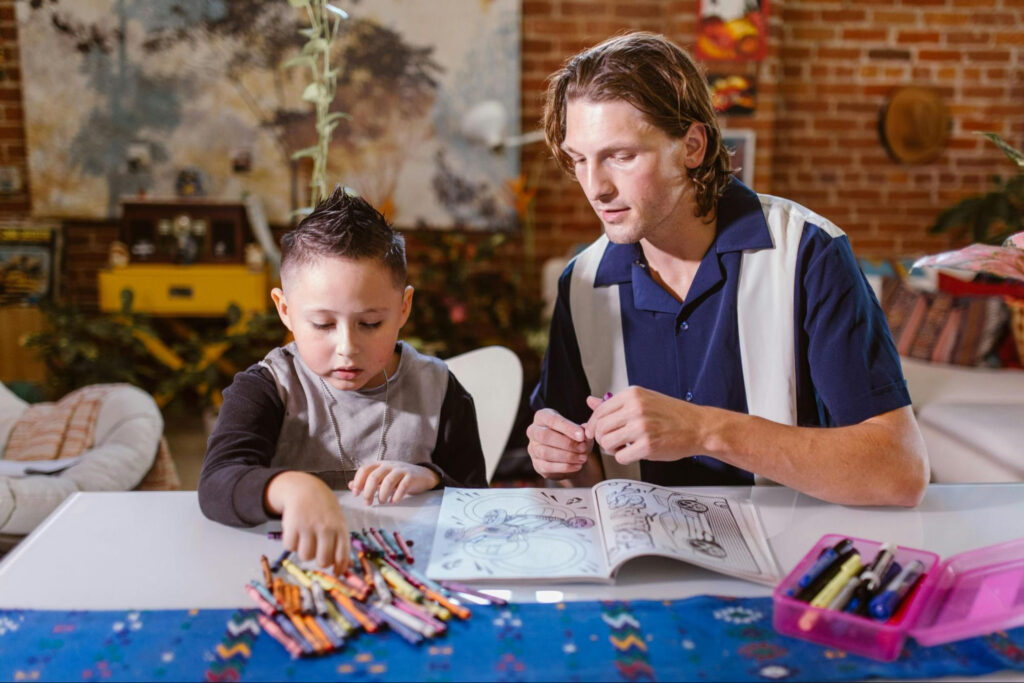Montessori Teacher Certification – Available in Allen, TX
Are you considering a career in education but aren’t sure what teaching path is right for you? Understanding the differences between Montessori schools and traditional schools can help you discover a rewarding career that aligns with your values and teaching philosophy. We explore the key differences between Montessori schools and regular schools, highlighting how becoming a Montessori teacher through the ICME Montessori Teacher Training Program can empower you to make a lasting impact on children’s lives in Allen, TX.
Montessori vs. Traditional Schools: The Key Differences
Montessori schools and traditional schools differ significantly in their teaching methods, classroom environments, and philosophies. Below are 10 key differences to help you better understand what makes the Montessori approach unique.
- Student-Centered Learning
In Montessori schools, students are active participants in their education, choosing tasks that interest them and working at their own pace. Traditional schools often follow a teacher-led model where the curriculum is standardized for the entire class.
- Multi-Age Classrooms
Montessori classrooms group students of different ages together, fostering peer learning and mentorship. In contrast, traditional schools typically separate students by age, with little opportunity for interaction between grades.
- Hands-On Learning
Montessori classrooms emphasize tactile, hands-on materials that engage multiple senses. Traditional schools tend to rely on textbooks and lectures as primary learning tools.
- Focus on Independence
Montessori education encourages students to take responsibility for their learning, promoting independence and self-motivation. Traditional schools often follow a more structured approach, with less emphasis on self-directed learning.
- Prepared Environment
Montessori classrooms are designed to promote exploration and discovery, with carefully arranged materials and an inviting layout. Traditional classrooms are typically set up with desks and chairs facing the teacher.
- Holistic Development
Montessori education nurtures the whole child—academically, socially, emotionally, and physically. In traditional schools, the focus is often more heavily placed on academic achievement.
- Uninterrupted Work Periods
Montessori students enjoy long, uninterrupted periods of work time to fully engage with tasks. In traditional schools, the schedule is more fragmented, with frequent transitions between subjects.
- Intrinsic Motivation
Montessori classrooms avoid traditional reward systems like grades and prizes, instead fostering intrinsic motivation by allowing children to experience the joy of learning. Regular schools often use extrinsic rewards, including grades and competition, to drive performance.
- Respect for Individual Pace
In Montessori schools, students progress at their own pace, allowing advanced learners to move ahead while others take the time they need to master concepts. Traditional schools generally follow a one-size-fits-all pace.
- Teacher’s Role
Montessori teachers act as guides and observers, facilitating rather than directing learning. Traditional school teachers often take on a more authoritative role, leading the class and delivering standardized lessons.
These differences create a nurturing environment in Montessori schools where children can thrive academically and personally.
Why Become a Montessori Teacher?
Montessori education is not only about academics; it’s about shaping future generations with values of independence, curiosity, and respect. Becoming a certified Montessori teacher offers the opportunity to teach in a way that truly impacts children’s lives, fostering their development in meaningful ways.
As a Montessori teacher, you’ll have the freedom to create a classroom environment that inspires children to learn naturally, without the constraints of rigid curriculums or standardized testing. This career path is ideal for those who are passionate about education and want to make a difference by embracing a holistic, child-centered approach.
The ICME Montessori Teacher Training Program
If you’re ready to take the first step toward becoming a Montessori teacher, the ICME Montessori Teacher Training Program is here to help. Our Early Childhood Certification courses focus on equipping aspiring teachers with the knowledge and skills needed to excel in a Montessori environment.
Key features of the program include:
- Thorough in-person instruction
- Extensive hand on teaching time
- Training in Montessori philosophy and methods.
- Hands-on experience with Montessori materials.
- A focus on child development and the role of the teacher as a guide.
- Year round open enrollment with a flexible class schedule
We also offer a scholarship program to make teacher training accessible for those passionate about Montessori education. With financial support options available, you can begin your journey without financial barriers.
Start Your Montessori Teaching Journey Today
Montessori education offers an inspiring alternative to traditional teaching methods, and becoming a Montessori teacher allows you to empower children while pursuing a fulfilling career. At ICME Montessori Teacher Training, we are dedicated to helping you achieve your goals with comprehensive training, expert guidance, and accessible programs.
Ready to make a difference in the lives of children? Register today or contact us with any questions about our programs and scholarship opportunities. Your journey toward a rewarding career in Montessori education starts here.
